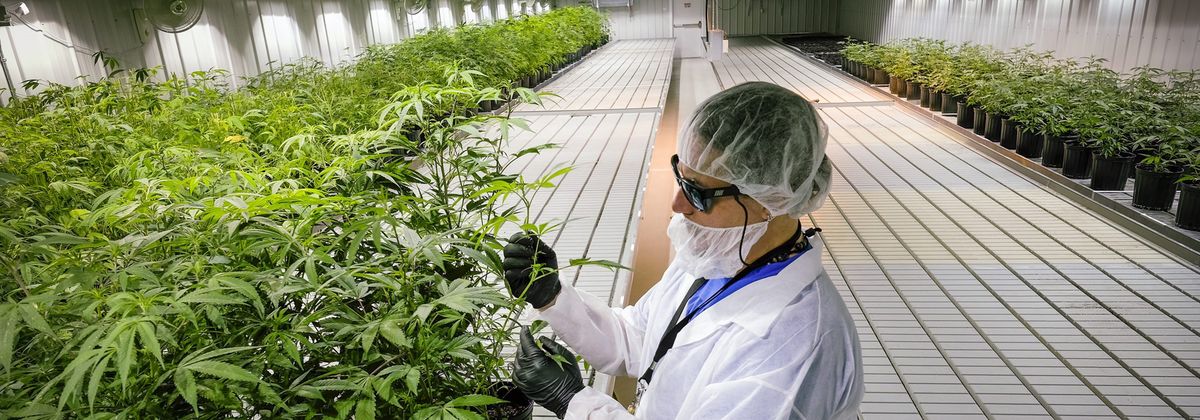The use of medical marijuana in Pennsylvania has evolved significantly since the state’s Medical Marijuana Act came into effect. This article delves into the multifaceted aspects of medical marijuana, from the legislative progress and health benefits to patient eligibility and regulatory compliance. We also examine the pivotal role of legal professionals in navigating the complexities of medical marijuana laws. With Pennsylvania’s progressive stance on cannabis use for therapeutic purposes, it’s crucial to understand the landscape of benefits, regulations, and legal considerations that shape the medical marijuana program in the Keystone State.
Key Takeaways
- Pennsylvania’s Medical Marijuana Act has established a comprehensive framework for the use and regulation of medical cannabis, reflecting a significant shift in the state’s approach to marijuana.
- Medical marijuana in Pennsylvania is credited with therapeutic benefits for a variety of chronic conditions, mental health issues, and may even have implications for respiratory health.
- To qualify for medical marijuana in Pennsylvania, patients must meet specific conditions, and there is a defined process for application, including caregiver qualifications.
- The state ensures the quality and safety of medical marijuana through stringent regulatory compliance, including dispensary operations and patient education.
- Legal professionals play a critical role in advocating for patient and provider rights, handling personal injury claims involving cannabis, and addressing future legal challenges.
The Evolution of Medical Marijuana Legislation in Pennsylvania

Overview of the Medical Marijuana Act
Pennsylvania’s Medical Marijuana Act has been a transformative piece of legislation, setting the stage for a comprehensive medical cannabis program within the state. The Act outlines the qualifying conditions for use and provides legal protections for patients, ensuring that those in need have access to this alternative form of treatment.
The framework established by the Act includes:
- A list of chronic and mental health conditions that qualify for treatment
- Regulatory oversight to ensure compliance and safe access
- A process for patients to obtain a medical marijuana license or card
The Act’s integration of medicinal cannabis into healthcare practices reflects Pennsylvania’s commitment to patient care and progressive health solutions.
With the Act in place, Pennsylvania joins a growing number of states recognizing the therapeutic potential of cannabis and working to harmonize state laws with evolving federal policies.
Interplay with Federal Law and Policy
The legal landscape for medical marijuana is marked by a significant discrepancy between federal and state laws, creating a complex environment for patients, providers, and businesses. While Pennsylvania has established its own set of regulations governing the use of medical cannabis, these rules often clash with federal statutes that classify marijuana as a controlled substance with no accepted medical use.
At the federal level, cannabis remains illegal, which can lead to challenges for those involved in the state-sanctioned medical marijuana industry. For instance, businesses may face difficulties in securing banking services or crossing state lines with their products. Patients, on the other hand, may find themselves in a legal gray area, particularly when federal laws intersect with other areas, such as firearm ownership.
The evolving nature of cannabis legislation requires continuous monitoring and adaptation by all stakeholders to navigate the intricate web of regulations effectively.
A recent legislative proposal aims to reconcile Pennsylvania’s medical marijuana laws with federal firearm regulations, highlighting the ongoing efforts to harmonize state and federal policies. This initiative reflects a broader trend of states seeking to protect their residents’ rights while complying with overarching federal guidelines.
Recent Amendments and Their Implications
On December 14, 2023, Governor Josh Shapiro signed Senate Bill 773 amending Pennsylvania’s Medical Marijuana Act. This pivotal legislation, set to take effect on April 12, 2024, introduces several key changes aimed at enhancing the program’s accessibility and regulatory framework.
The amendments include:
- Expansion of qualifying medical conditions
- Streamlining the patient registration process
- Adjusting the caregiver program
- Implementing additional quality control measures
These amendments represent a significant step forward in refining the medical marijuana landscape in Pennsylvania, ensuring that patients have better access to treatments while maintaining high safety and quality standards.
The implications of these changes are far-reaching, potentially increasing patient enrollment and improving the overall efficacy of the state’s medical marijuana program. As the effective date approaches, stakeholders are encouraged to familiarize themselves with the new regulations to ensure seamless compliance and continued safe access to medical cannabis.
Understanding the Medical Benefits of Cannabis

Therapeutic Uses for Chronic Conditions
The use of medical marijuana in Pennsylvania extends to a variety of chronic conditions, offering relief where traditional medications may fall short. Chronic pain, a prevalent qualifier for medical cannabis, can significantly disrupt daily life, but patients report substantial relief when incorporating cannabis into their treatment plan.
Medical marijuana is also prescribed for severe nausea, often related to chemotherapy, and persistent muscle spasms, like those experienced in multiple sclerosis (MS). The versatility of cannabis in treating these symptoms has made it a valuable option in the state’s medical program.
Patients with a range of chronic conditions find that medical marijuana can enhance their quality of life by alleviating symptoms that are otherwise difficult to manage.
In Pennsylvania, the list of qualifying conditions for a medical marijuana card is extensive, including but not limited to:
- Inflammatory bowel disease (IBD)
- Intractable seizures
- Neurodegenerative diseases
- Neuropathies
- Parkinson’s disease
- Sickle cell anemia
For mental health, conditions such as anxiety disorders, obsessive-compulsive disorder (OCD), and post-traumatic stress disorder (PTSD) are also recognized. Individuals with Tourette Syndrome (TS) may find that medical marijuana helps manage their tics more effectively.
It is important for patients to discuss cannabis use with their healthcare provider, especially to avoid potential drug interactions with conventional medications. For some physical conditions, combining cannabis with therapies like physical therapy for cerebral palsy or behavioral therapy for mental health conditions can be synergistic.
Mental Health and Medical Marijuana
The intersection of mental health treatment and medical marijuana is a dynamic area of both medical practice and legal regulation. A growing body of research supports the efficacy and safety of medical marijuana for mental health conditions, yet the topic remains contentious among professionals. Patients often report symptom relief, highlighting the importance of informed discussions with healthcare providers who are well-versed in state regulations and the nuances of cannabis use for mental health.
The use of medical marijuana in mental health care requires careful consideration of both the potential benefits and the legal landscape. Understanding the legal framework is crucial, as states with medical marijuana programs typically require a physician’s recommendation, and the qualifying mental health conditions can vary significantly from state to state.
- PTSD
- Anxiety Disorders
- Depression
These are examples of mental health conditions that may qualify for medical marijuana treatment in some states, including Pennsylvania. It is essential for patients and healthcare providers to stay informed about the latest research, clinical trials, and evolving state laws to ensure safe and effective treatment.
Research on Cannabis and Respiratory Health
The discourse on cannabis often touches on its respiratory effects, given the common consumption method of smoking. Research has been pivotal in understanding the respiratory implications of cannabis use. Studies have compared the respiratory outcomes of different cannabis consumption methods, such as smoked, vaporized, and oral administration.
- Smoked cannabis has been associated with certain respiratory symptoms, but the long-term consequences remain under investigation.
- Vaporized cannabis presents a different profile, with some studies suggesting reduced respiratory symptoms compared to smoking.
- Oral administration of cannabis bypasses the respiratory tract, eliminating many of the associated respiratory risks.
The nuances of cannabis consumption methods are critical in evaluating their impact on respiratory health. Each method carries its own set of potential benefits and risks, which are essential for both users and healthcare providers to understand.
Further research is needed to fully elucidate the acute and chronic effects of cannabis on respiratory health, especially as legalization and usage patterns evolve.
Qualifying Conditions and Patient Eligibility

Comprehensive List of Qualifying Conditions
In Pennsylvania, the scope of qualifying conditions for medical marijuana encompasses a wide array of health issues. Patients with chronic, debilitating, or life-threatening conditions may find relief through the state’s medical marijuana program.
The following conditions are among those that qualify for medical marijuana in Pennsylvania:
- Amyotrophic lateral sclerosis (ALS)
- Cancer
- Chronic Hepatitis C
- Crohn’s disease
- Epilepsy
- Glaucoma
- HIV/AIDS
- Severe chronic or intractable pain
- Severe nausea
- Persistent muscle spasms, such as those associated with multiple sclerosis
It is essential for patients to consult with a certified medical professional to determine if their condition is eligible under Pennsylvania law.
The list is not exhaustive, and other mental health conditions, as well as physical ailments like spinal cord damage with intractable spasticity, may also qualify. The process of obtaining medical marijuana involves a certification from a registered physician and a successful application to the state’s program.
Navigating the Application Process
To obtain a medical marijuana card in Pennsylvania, patients must follow a series of steps that ensure compliance with state regulations. Confirming eligibility is the first crucial step, where patients must verify that their condition is on the state’s list of qualifying medical conditions. Following this, obtaining the necessary medical documentation that supports the diagnosis is essential.
The application itself requires careful attention to detail. Applicants must complete all required forms, which typically include providing a state-issued ID and proof of residency. A non-refundable application fee is also part of the process, and the costs can vary.
Consumer protection laws in Pennsylvania mandate rigorous verification during the application process to prevent misuse and ensure that only qualified patients receive a medical marijuana card.
Once the application is submitted, the waiting period begins. While some may wonder, ‘Can You Get a Medical Marijuana Card the Same Day in PA?‘, it’s important to understand that the certification process, including costs and conditions for renewal, is structured to maintain integrity and safety.
Caregiver Qualifications and Responsibilities
In Pennsylvania, caregivers play a crucial role in the medical marijuana program, particularly for minors, home-bound patients, and those who require additional assistance. Becoming a caregiver requires adherence to specific qualifications and responsibilities.
To qualify as a caregiver, one must:
- Possess a valid Pennsylvania driver’s license or state-issued ID card.
- Be at least 21 years of age, unless special authorization is provided.
- Successfully pass a criminal history background check.
- If caring for a patient with a PA medical card, have their name, date of birth, and patient ID number.
For minor patients, a parent or legal guardian must register as the caregiver. If you are not the parent or legal guardian, an authorization form to designate a third-party caregiver is necessary. This form can be obtained and submitted through the caregiver’s profile on the registration site.
The role of a caregiver is not only to provide access to medical cannabis but also to ensure the patient’s well-being and compliance with the medical marijuana program’s regulations.
Caregivers must understand their responsibilities, which include the safe handling and administration of medical marijuana, as well as staying informed about the patient’s condition and any changes in legislation that may affect their access to treatment.
Regulatory Compliance and Safe Access

Ensuring Quality Control and Safety
In Pennsylvania, the journey towards ensuring quality control and safety of medical marijuana involves a multifaceted approach. Laboratory testing standards play a pivotal role in maintaining compliance with state and federal regulations. For THC-A product manufacturers, this means adhering to the 0.3% delta-9 THC threshold imposed on hemp-derived products by federal law, which is verified through rigorous laboratory testing.
To navigate the complexities of these regulations, manufacturers must regularly test their products for THC content on a dry weight basis. This practice is essential for demonstrating compliance and mitigating legal risks. The state’s Department of Health’s Medical Marijuana Program may also evolve to oversee the quality control of recreational products, should legalization expand.
Ensuring that medical marijuana meets the highest standards of safety and efficacy is not just a regulatory requirement; it’s a commitment to patient well-being.
Consumer privacy and protection are also paramount, with measures in place to safeguard sensitive patient information. Adherence to these standards fosters a safe and trustworthy environment for both consumers and businesses in the medical marijuana industry.
Dispensary Licensing and Operations
In Pennsylvania, the operation of medical marijuana dispensaries is tightly regulated to ensure patient safety and product integrity. Dispensaries must obtain a license from the state, which involves a rigorous application process. This process includes background checks, facility inspections, and compliance with operational standards.
To maintain their license, dispensaries are required to adhere to strict guidelines regarding the sourcing, storage, and sale of cannabis products. A recent development in state law has opened the door for dispensaries previously barred from cultivating cannabis to begin growing operations, potentially increasing the number of dispensary permits by 20%.
- Register with the state’s medical marijuana program
- Secure a location that complies with zoning laws
- Implement a seed-to-sale tracking system
- Provide staff with comprehensive training
Dispensaries play a crucial role in patient education, ensuring that individuals receive accurate information about the medical cannabis products they use.
Patient Education and Product Knowledge
Ensuring that patients are well-informed about the medical marijuana products they use is crucial for both safety and efficacy. Patient education is a cornerstone of the medical marijuana program in Pennsylvania. It is essential that patients understand the characteristics and proper use of cannabis products, including the concentration levels of THC and CBD.
To address this need, educational initiatives have been developed. These include mass media campaigns and training for healthcare providers, aimed at improving patient knowledge of cannabinoid concentrations and their impact on health. Patients with higher levels of education tend to have a better understanding of product labels and can more accurately gauge THC and CBD levels. This underscores the importance of accessible and clear information for all patients, regardless of their educational background.
The correlation between patient education and the ability to understand product concentrations is significant. It suggests that more effort should be put into simplifying the information presented to patients, to ensure that everyone can make informed decisions about their treatment.
Understanding the nuances of medical marijuana use is not only about knowing the concentrations but also about being aware of the different types of products available and their respective benefits and risks. This knowledge is vital for patients to safely navigate their treatment options and to use medical marijuana effectively.
The Role of Legal Professionals in Medical Marijuana

Legal Advocacy for Patients and Providers
In the realm of medical marijuana, legal advocacy is a cornerstone for ensuring that patients and providers operate within the legal framework while maximizing their rights and protections. Legal professionals, such as those at Philadelphia Injury Lawyers, P.C., are instrumental in guiding individuals through the complexities of the law, particularly when it intersects with personal injury claims.
- Patient Rights: Legal advocates work to safeguard the rights of patients, ensuring privacy and protection from legal challenges.
- Provider Support: They also support providers by helping them understand and comply with regulatory requirements.
- Navigational Aid: Attorneys assist in navigating the application process for medical marijuana certification and any legal hurdles that may arise.
The interplay between legal advocacy and medical marijuana legislation is dynamic, with legal professionals advocating for reform and justice in this evolving field.
It is important to note that while legal protections are robust within state borders, they typically do not extend beyond. This underscores the importance of having a knowledgeable legal advocate who can provide clarity and direction, especially in matters involving cross-state implications.
Navigating Personal Injury Claims Involving Cannabis
The legalization of medical marijuana in Pennsylvania has introduced complex challenges in personal injury law, particularly when cannabis is involved in medical treatment or compensation claims. Understanding the nuances of these legal challenges is essential for fair and adequate settlements.
- The role of the courts has been instrumental in shaping the legal framework for cannabis-related personal injury claims.
- Legal professionals must be well-versed in both the Medical Marijuana Act and personal injury law to effectively represent their clients.
- It is crucial for injured parties to seek specialized legal guidance to navigate the complexities of claims involving medical marijuana.
The evolving landscape of medical marijuana legislation necessitates informed decision-making in personal injury cases to ensure that patients’ rights are upheld and appropriate compensation is secured.
Philadelphia Injury Lawyers, P.C. has emerged as a key player in providing the necessary legal support to individuals navigating the intersection of medical marijuana use and personal injury claims. Their expertise is invaluable in a legal environment that is still adapting to the implications of cannabis legalization.
Future Legal Challenges and Opportunities
The legal landscape for medical marijuana in Pennsylvania is poised for further evolution, with significant shifts in societal and legal attitudes toward cannabis. As neighboring states advance their policies, Pennsylvania faces pressure to adapt and reform its own laws. The potential for legal recreational marijuana looms on the horizon, raising questions about the state’s position and readiness for change.
- The impact of court decisions on medical marijuana legislation cannot be overstated. These rulings will continue to shape the legal framework, influencing cultivation, distribution, and use.
- Legal professionals, particularly in personal injury law, will play a pivotal role in navigating these changes, advocating for clients affected by the regulatory shifts.
- The interplay between state legislation and federal law remains a complex and dynamic area, with legal breakthroughs marking pivotal moments for medical treatment and research.
The unfolding legal landscape presents both challenges and opportunities for stakeholders, demanding vigilance and adaptability to ensure compliance and protect the interests of patients and providers alike.
Conclusion
As Pennsylvania continues to navigate the evolving landscape of medical marijuana, it is clear that the state has taken significant strides in integrating cannabis into healthcare practices. From the establishment of the Medical Marijuana Act to the careful regulation of THC content in products, Pennsylvania has demonstrated a commitment to providing safe and legal access to medical cannabis for patients with qualifying conditions. However, the interplay between state and federal laws, as well as the unique restrictions such as the prohibition on possessing firearms, highlights the complexity of medical marijuana regulation. It is essential for patients and healthcare providers to stay informed and work with legal professionals to ensure compliance and to fully benefit from the therapeutic potential of medical marijuana. The state’s progressive approach, coupled with ongoing legal support and public advocacy, suggests a future where medical marijuana is an integral part of patient care in Pennsylvania.
Frequently Asked Questions
What is the Pennsylvania Medical Marijuana Act and when was it established?
The Pennsylvania Medical Marijuana Act is legislation that was established in 2016 to outline the qualifying conditions for use, legal protections for patients, and a framework for regulatory oversight. It ensures compliance and safe access to medical marijuana for eligible patients in the state.
How does Pennsylvania’s medical marijuana law interact with federal law?
While medical marijuana is legal in Pennsylvania, it remains illegal under federal law. This creates a complex legal landscape where federal and state laws conflict, particularly with issues such as the prohibition on possessing firearms and medical marijuana under Pennsylvania’s Uniform Firearms Act.
What conditions qualify for medical marijuana treatment in Pennsylvania?
Pennsylvania has a list of qualifying conditions for medical marijuana treatment, which includes various chronic medical conditions, certain mental health conditions, and other physical ailments. The specific list can be found on the Pennsylvania Department of Health website or through licensed medical providers.
Are CBD products legal in Pennsylvania, and how do they differ from medical marijuana?
Yes, CBD products derived from hemp are legal in Pennsylvania. The state has even issued licenses for the legal cultivation of hemp. CBD products are different from medical marijuana in that they must contain less than 0.3% THC, which is the psychoactive component of cannabis, to comply with both state and federal law.
How can a patient navigate the application process to obtain a medical marijuana card in Pennsylvania?
To obtain a medical marijuana card in Pennsylvania, patients must have a qualifying condition and undergo a consultation with a licensed healthcare provider. The application process involves securing a medical marijuana license or card, which can be done through the Pennsylvania Department of Health’s website or with the assistance of a healthcare provider.
What is the role of legal professionals in the context of medical marijuana in Pennsylvania?
Legal professionals, such as personal injury attorneys, play a crucial role in navigating the complex legalities surrounding medical marijuana. They provide guidance and support to patients and providers, help with navigating personal injury claims involving cannabis, and address future legal challenges and opportunities as the regulatory environment evolves.





